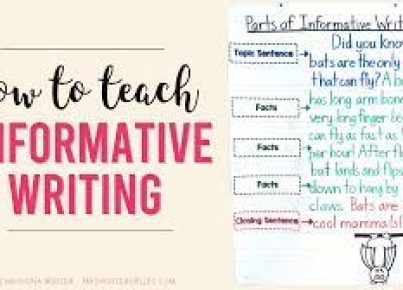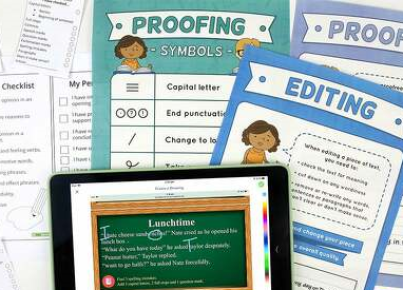Informative writing is a fundamental element of education, serving as the backbone for students to convey knowledge and ideas in a clear and structured manner. It is crucial in developing critical thinking and communication skills. As educators, it is essential to equip students with the skills necessary to excel in informative writing through effective teaching strategies and well-crafted unit plans.
Teaching Tips for Informative Writing:
Start with Understanding Purpose:
Educators should first ensure that students understand the purpose of informative writing – to educate the reader without reflecting personal opinion. Teachers can present examples of informative texts like news articles, encyclopedic entries, or how-to guides.
Focus on Structure and Clarity:
Teach students the standard structure of an informative essay: an introduction with a thesis statement, body paragraphs with supporting evidence, and a conclusion that summarizes key points. Stress the importance of clarity and conciseness in conveying information.
Develop Research Skills:
Informative writing requires reliable information. Teach students to research from credible sources, how to take notes effectively, and the importance of cross-referencing information to ensure accuracy.
Enhance Vocabulary:
Encourage students to expand their vocabulary; a rich vocabulary aids in more precise and engaging writing. Incorporate activities that introduce new words and their usage within informative contexts.
Practice Paraphrasing:
Students should learn to paraphrase research findings. This skill prevents plagiarism and allows them to process and communicate information in their own words.
Utilize Graphic Organizers:
Graphic organizers can help students plan their writing by organizing their thoughts, outlining main ideas, supporting details, and data before they begin drafting their essays.
Incorporating Technology:
Use technological tools for research, collaborative writing, or presenting information in different formats such as slideshows, blogs, or digital posters.
Peer Review Sessions:
Incorporate peer review sessions where students read each other’s work and give constructive feedback focussing on the content’s informativeness.
Unit Plans for Informative Writing:
Week 1: Introduction to Informative Writing
– Objective: Students will understand what informative writing is.
– Activities: Explore various informative texts and discuss characteristics. Practice identifying thesis statements and main points.
Week 2: Research Skills
– Objective: Students will learn to gather information from credible sources.
– Activities: Library session on research databases, practice note-taking methods, start preliminary research on chosen topics.
Week 3: Writing Process – Organizing Information
– Objective: Students will outline their essays using graphic organizers.
– Activities: Brainstorming sessions; teach how to organize facts into introduction, body, and conclusion; construct thesis statements.
Week 4: Drafting
– Objective: Students will write the first draft of their informative essay.
– Activities: Provide class time for drafting. One-on-one consultations with teacher for guidance.
Week 5: Revising & Editing
– Objective: Student will refine drafts for clarity and correctness.
– Activities: Peer reviews focused on content; teacher reviews focused on grammar, style, punctuation.
Week 6: Finalizing & Presenting
– Objective: Students will complete final draft and present their work.
– Activities: Preparation of final draft; students present their essays or create a visual representation of their topic for class discussion.
By integrating these teaching tips and unit plans into the curriculum, educators can help students master the art of informative writing – a skill that transcends academic purposes and prepares them for real-world communication challenges.





